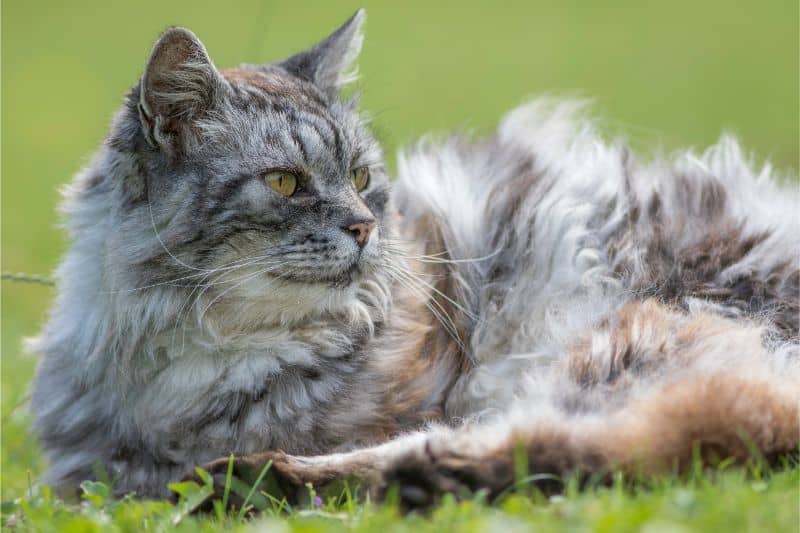Hitting the Jackpot Through Loving Senior Cat Care

If you’ve had your cat since they were a kitten, you might look back at those early years with nostalgia. Yet, there’s really nothing like living in syncopation with an older cat. They might be set in their ways, sure, but they are also carefully attuned with the rhythms and patterns of the household.
However familiar they may be, senior cat care isn’t anything to take for granted. Your aging or senior cat’s ongoing good health stems from your continual assessment and staying in front of any age-related issues.
Keep Your Senior Cat Care Appointments
Senior cats should be examined every 6 months. This frequency allows for more opportunities to get to know your cat (if we’re not already close friends) and note any changes to their appearance, such as weight loss/gain or coat quality, and behavior.
Cats are famous for masking any signs of illness or injury. Many symptoms of age-related diseases are incredibly subtle. When we’re given the chance to detect even the slightest changes (typically revealed through blood work, urinalysis and other diagnostics), we can manage conditions proactively. This approach can make a big difference to lifelong health.
Sinking Our Teeth
Senior cat care isn’t always complicated but when their teeth and gums hurt, they’re lust for life is significantly diminished. An oral exam is part of their routine wellness visit. If we see any gum inflammation or evidence of an infected, broken or missing tooth, it’s time to pursue dental treatment under anesthesia.
Full diagnostics are necessary prior to the dental procedure. Results can decide whether or not an older kitty can withstand the anesthetic and be able to flush it from their liver and kidneys afterwards.
Hungry, Not Hungry
The nutritional needs of senior cats are very different from adults or kittens. As they grow older, their metabolism slows down and they can become more sedentary. If portion sizes aren’t closely monitored, this combination can lead to weight gain.
Feline obesity is on the rise. Known for leading to or exacerbating diabetes, liver problems and osteoarthritis, obesity should be avoided at all costs. A balanced senior diet can result in a healthy weight, and a longer life.
Weight loss in an aging cat is also a cause for concern. Hyperthyroidism, intestinal disease, and other health conditions can cause a pet to shed pounds.
Making Your Own Changes
At home you can adjust certain things to support senior cat care, such as:
- Install ramps or carpeted cat stairs for them to access previously jumped-upon spots
- Check to make sure they can still get in and out of the litter box and make changes accordingly
- Provide bedding with extra padding or self-heating capabilities
- Be sure to give them daily snuggles, pets, grooming and lots of extra attention
- Adjust their play time to meet their needs
A+ Senior Cat Care
We recommend keeping a journal that helps you track senior cat care at home. Any behavioral changes, vomiting, missing the litter box, shifts in sleeping patterns, and more can help you figure out what your cat needs.
Please bring your observations with you to your senior cat’s next wellness exam at Rocklin Ranch Veterinary Hospital. Your diligence to senior cat care at home can make all the difference as we move through the years together.

